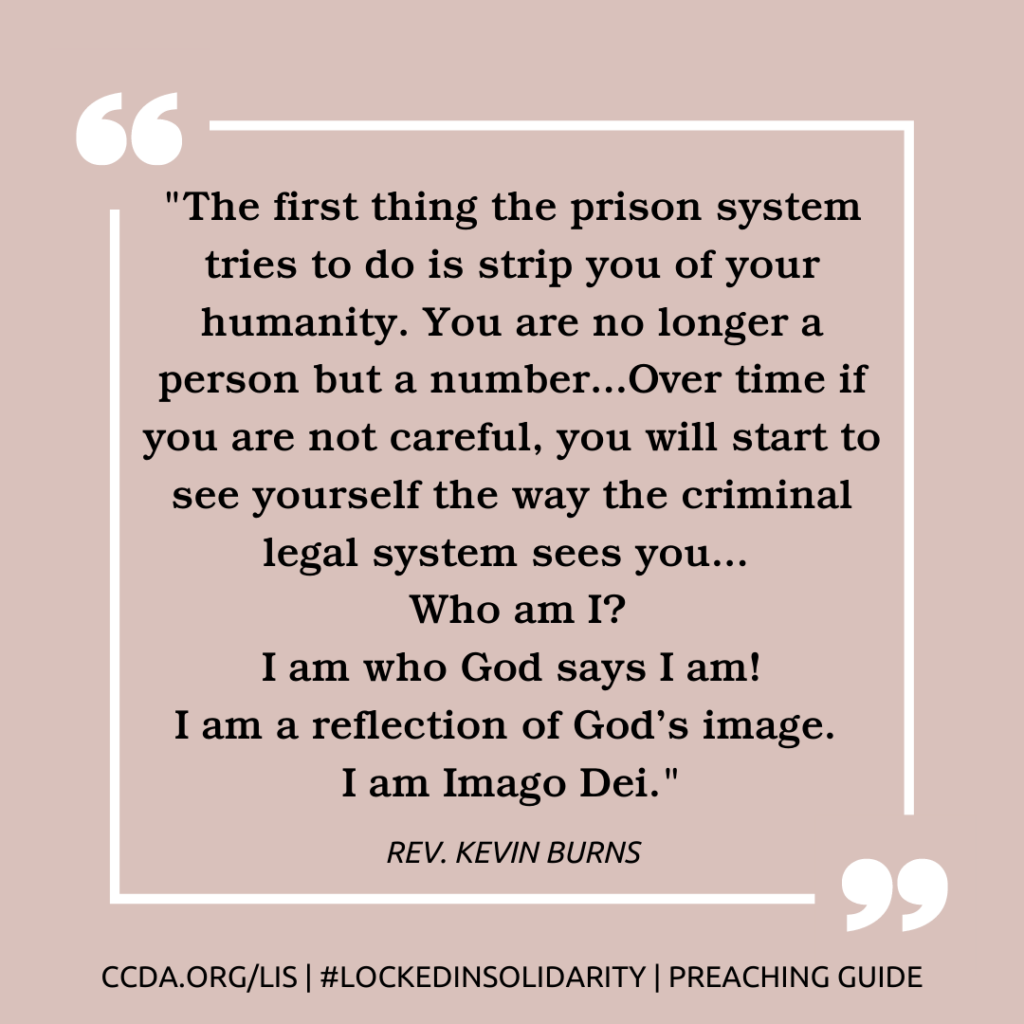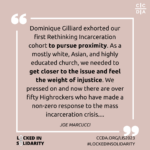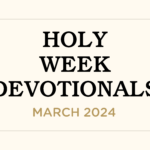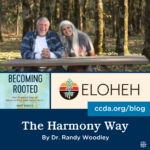Written by: Rev. Dr. Kevin Riggs & Rev. Kevin Burns
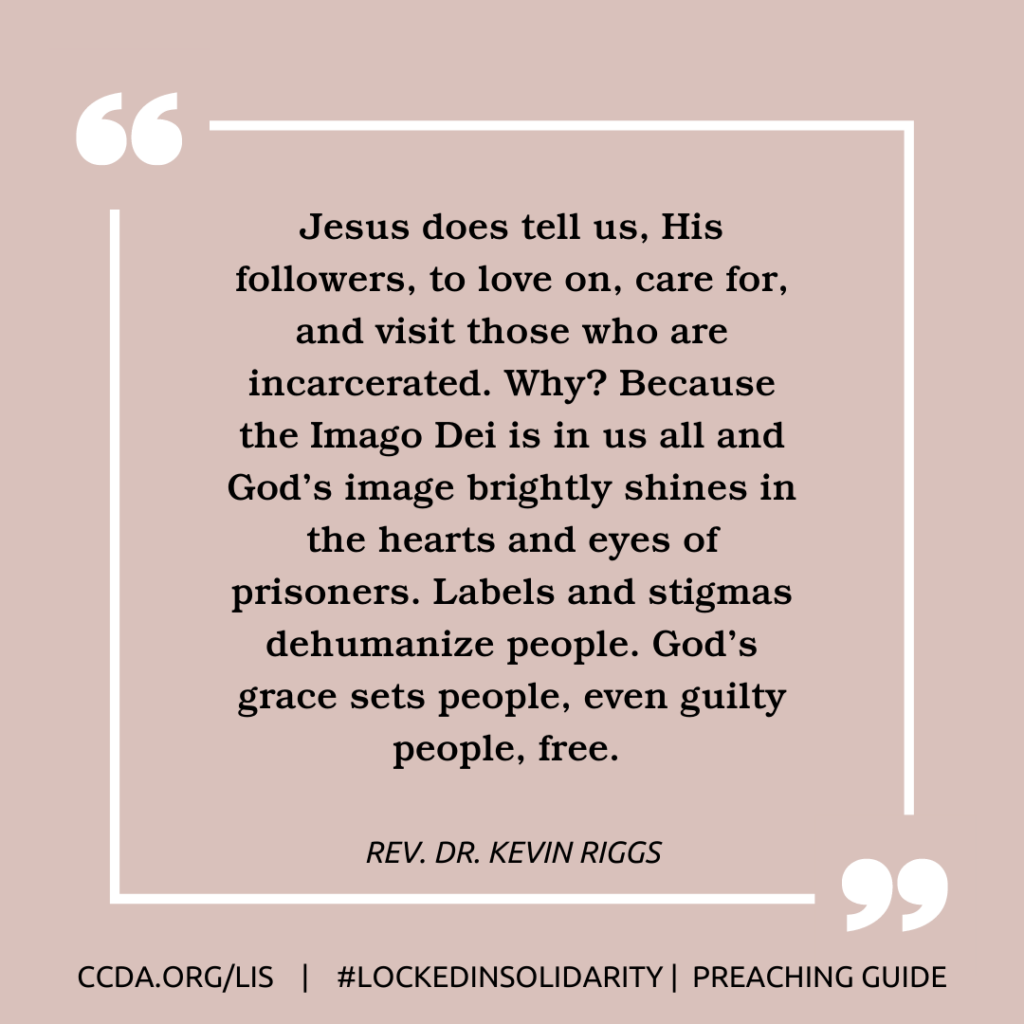
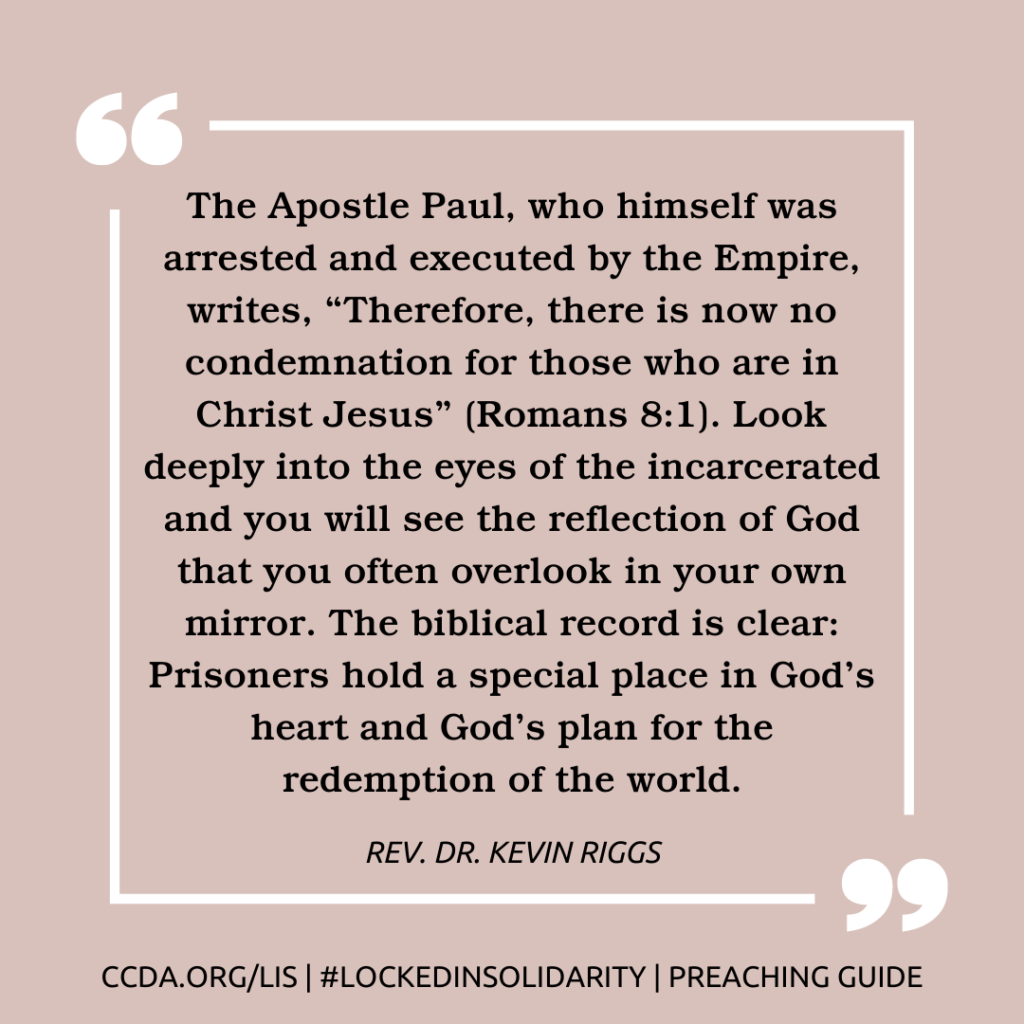
Johnny is only in the fourth grade, but he has already been labeled by his teachers as a problem. He can’t sit still. He is disrespectful. He can’t keep his hands to himself. He is picked on by other students and is constantly getting in fights. Johnny is always in trouble and continually in and out of the principal’s office. To be honest, when Johnny is not in school everyone’s day goes better. Teachers in the fifth grade are already petitioning the principal not to put Johnny in their class. That is, assuming Johnny makes it out of fourth grade. More than likely he will move on to fifth grade because thehe fourth-grade teachers have had enough, and Johnny’s got a younger brother, Scotty, in the third grade. Like his brother, Scotty has already been labeled as a problem. Next year will not be any easier on anyone.
Sociologists know labeling people is dangerous. Why? Because people have a way of becoming what society labels them! Labels often become a self-fulfilling prophecy. The idea behind labeling theory is that deviance and conformity come more from how a person responds to how others see them than it does from what that person actually does. If a child gets labeled a troublemaker, he or she, over time, tends tobecome a troublemaker. Most people don’t want to admit it, but often, the way we see ourselves is how we think other people see us and then we act out based on that false perception.
Now, consider what happens the moment a juvenile, or even an adult, is incarcerated. Immediately they are stripped of their identity, forced to wear a colored uniform based on their charge, given a number instead of a name, and for the rest of their lives labeled an inmate, or a felon, or a criminal. Even after release, the label sticks with them and becomes a stigma—a mark of shame or discredit.
Also, consider this, through “zero-tolerance” policies and more “resource officers” in schools, more and more minority children are funneled out of school and into juvenile and criminal legal systems. Instead of getting additional educational and counseling services, these children are punished, isolated, marginalized, and labeled. Next, the child acts more and more like he or she has been labeled. Teachers, administrators, and adults in the neighborhood will even say, “That child will end up in prison one day!” This is known as the school to prison pipeline.
As followers of Jesus, we know labeling people is counterproductive and dangerous. Why? Because labels attack the Imago Dei in all of us. We are not who other people say we are! We are who God says we are, and God says we are created in the image of the Divine. Genesis records these words, “Then God said, ‘Let us make man in our image, in our likeness…So God created man in his own image, in the image of God he created him; male and female he created them” (Genesis 1:26-27).
Imago Dei is Latin for the biblical phrase, “image of God.” What does it mean to say we are created in God’s image? It means that while we are not God, we are reflections, or copies, of God. It means there is something in us that is an expression of who God is. We are created in God’s image. God is not created in our image.
The Imago Dei is best seen in our personhood. In other words, in our moral, spiritual, and intellectual essence, we reflect God. Imago Dei means we are an expression of who God is and what God is like. Fundamentally, to be created in the image of God means we were created by God to be known by God and to know God. We were created to live in relationship to God, and because all of creation reflects elements of the character and nature of God, we were created to live in relationship with all of God’s creation as well. This obviously includes other people because everyone, absolutely everyone, has been created in the Imago Dei. All life is valuable and no person can be tossed away and discarded as worthless, condemned, unlovable, evil, or beyond redemption.
While the Imago Dei in each of us has been marred by sin, the Imago Dei has been restored and redeemed by God’s grace through the life, death, and resurrection of Jesus Christ. In fact, to be “saved” means to be put back together, to mend what was broken, and to be made whole again. The Apostle Paul writes, “Consequently, just as the result of one trespass was condemnation for all men, so also the result of one act of righteousness was justification that brings life for all men. For just as through the disobedience of the one man the many were made sinners, so also through the obedience of the one man the many will be made righteous” (Romans 5:18-19). The very act of salvation is made possible because of the Imago Dei in us all!
God’s View of Prisoners:
Since the Imago Dei is in all of us, and since all of us are valuable and irreplaceable reflections of who God is, one of the highest injustices we can do to another person is to label them with such a heavy label they can never overcome. Far too often we do this to people once they have entered our criminal legal system. No single act or series of acts can destroy the Imago Dei in us. No matter what a person has done, or how guilty they may be, they still are a reflection of the Imago Dei. Furthermore, the Bible makes it clear there is a special place in God’s heart for the prisoner. Consider the following verses of Scripture:
- Psalm 69:33 – “The LORD hears the needy and does not despise his captive people.”
- Psalm 79:11 – “May the groans of the prisoners come before you; by the strength of your arm preserve those condemned to die.”
- Psalm 102:19-20 – “The LORD looked down from his sanctuary on high, from heaven he viewed the earth, to hear the groans of the prisoners and release those condemned to death.”
- Psalm 146:7 – “He upholds the cause of the oppressed and gives food to the hungry. The LORD sets prisoners free.”
- Isaiah 42:6-7 – “I, the LORD, have called you in righteousness; I will take hold of your hand. I will keep you and will make you to be a covenant for the people and a light for the Gentiles, to open the eyes that are blind, to free captives from prison and to release from the dungeon those who sit in darkness.”
- Isaiah 61:1 – “The Spirit of the Sovereign LORD is on me, because the LORD has anointed me to preach good news to the poor. He has sent me to bind up the brokenhearted, to proclaim freedom for the captives and release from darkness for the prisoners.”
- Hebrews 13:3 – “Remember those in prison as if you were their fellow prisoners, and those who are mistreated as if you yourselves were suffering.”
Yes! Everyone has been created in God’s image.
Yes! God loves everyone.
Yes! Jesus died for the sins of the entire world.
Yet still, God specifically cries out to the prisoner and says, “I love you. I have not forgotten about you. You are valuable to Me. I have come to set you free. You are not a reflection of the worst thing you have done. You are a reflection of the Imago Dei!” What an extraordinary amount of love, grace, and restorative justice.
Think about the life of Jesus. Not long after His birth He was put on Caesar’s most wanted list (Matthew 2:16). Jesus’ family were fugitives in Egypt. From the very beginning of His life, Jesus was labeled a troublemaker.
Years later, returning to His hometown synagogue to announce He was the Messiah, Jesus, reading from the prophet Isaiah, says, “The Spirit of the Lord is on me, because he has anointed me to preach good news to the poor. He has sent me to proclaim freedom for the prisoner” (Luke 4:18). Jesus clearly states He came for the incarcerated. Nowhere does Jesus specifically say He came for the people on Wall Street, but He does specifically say He came for the people on Death Row, and those in county jails, and those in juvenile detention. Jesus says He came to set the prisoner free!
One of Jesus’s most familiar (and convicting) parables was about the difference between sheep and goats (Matthew 25:31-46). His point was to explain who had eternal life and who didn’t; who would be rewarded and who would be punished; who was part of God’s kingdom and who wasn’t. It’s important to note this is the clearest of all Jesus’ teaching about who was in (sheep) and who was out (goats). One of the distinguishing traits of those who were sheep—those who were in the Kingdom, those who had eternal life—was they visited prisoners (Matthew 25:36).
At the end of His life Jesus was incarcerated, tortured, and executed by the State. Jesus was a prisoner Himself! Jesus had a criminal record! Jesus was a convicted felon! I tell people who want to get involved in prison ministry they must understand they do not take Jesus into prison with them. Rather, they go into prisons to meet Jesus. He is already there. He has always been there. He will always be there. Jesus has more in common with those sitting in a prison cell than those sitting in a church pew.
Furthermore, as Jesus hung on the cross as a condemned man, the very last people He talked to before taking His final breath, were two prisoners! (See Luke 23:32-46). From the beginning to the middle to the very end of His life and earthly ministry, Jesus made it clear He came for, and died for, the prisoner. Then, and I admit I don’t understand this, between His death and resurrection, Jesus “preached to the spirits in prison” (1 Peter 3:19).
Nowhere does Jesus tell us, His followers, to start churches with great programs, beautiful buildings, and incredible music. But Jesus does tell us, His followers, to love on, care for, and visit those who are incarcerated. Why? Because the Imago Dei is in us all and God’s image brightly shines in the hearts and eyes of prisoners. Labels and stigmas dehumanize people. God’s grace sets people, even guilty people, free. The Apostle Paul, who himself was arrested and executed by the Empire, writes, “Therefore, there is now no condemnation for those who are in Christ Jesus” (Romans 8:1). Look deeply into the eyes of the incarcerated and you will see the reflection of God that you often overlook in your own mirror. The biblical record is clear: Prisoners hold a special place in God’s heart and God’s plan for the redemption of the world.
Inmate #254315 (Rev. Kevin Burns)
On November 29, 1995, I left the Shelby County Jail in Memphis, Tennessee, where I had been since July 23, 1992, and walked onto Tennessee’s Death Row inside Riverbend Maximum Security Institution (RMSI) in Nashville, Tennessee. I had been found guilty of felony murder and attempted felony murder. To the world I was a condemned man who should be executed and shown no mercy, even though I was innocent. According to the criminal legal system, I was no longer a person. I was simply Inmate #254315.
The first thing the prison system tries to do is strip you of your humanity. You are no longer a person but a number. You are no longer an individual but a ward of the State. All you have is time, but it is their time, not yours. Every day is regimented. Every day is the same. You get up at the same time. You eat at the same time. You shower at the same time. You go to the yard at the same time, and you wear the same clothes day after day, month after month, year after year, decade after decade. You are treated as if you are nothing, as if you do not matter. Over time if you are not careful, you will start to see yourself the way the criminal legal system sees you.
But I am not who other people say I am. I am not who the prosecutor says I am. I am not who the jury says I am. I am not who the department of corrections says I am. I am not who the guards say I am. And, most importantly, I am not who I say I am. Who am I?
I am who God says I am!
I am a reflection of God’s image.
I am Imago Dei.
I am holy.
I am pure.
I am forgiven.
I am sanctified.
I am Holy Spirit indwelled.
I am a father, a grandfather, a son, a brother, an uncle, and an ordained minister of the Gospel of Jesus Christ.
I am Kevin Burns, a child of the King and an heir of God.
When people ask how I can be so positive and stay so joyful, I tell them it’s because I see myself the way God sees me, not how others see me and not even how I see myself. For me it’s quite simple. I believe the testimony of God about me more than I believe the testimony of man about me. God’s word is higher than my thoughts. God’s opinion of me supersedes other people’s opinion of me. The words of Jesus are the most important thing to me. Ultimately, I believe, “I have been crucified with Christ and I no longer live, but Christ lives in me. The life I live in the body, I live by faith in the Son of God, who love me and gave himself for me” (Galatians 2:20). I hold tightly to the truth that “For me to live is Christ and to die is gain” (Philippians 1:21). This doesn’t mean I don’t have challenges. This doesn’t mean life is easy. There have been times that have tried my faith, but I have always found God faithful. The truth is, I have no plan B. This is it for me. God is all I’ve got. Either God saves me, or I am a dead man.
Right now, inside RMSI, I serve as the chaplain’s assistant for Unit 2, otherwise known as Death Row. But several years ago, I worked in the kitchen, washing dishes in what we call the “Tray Room.” I worked from 6am till 4pm every day. When I started I got paid 17 cents an hour. Eventually I was making 42 cents an hour. (Now, as the chaplain’s assistant I make 50 cents an hour.)
While working in the Tray Room there was a guard who never seemed happy and who only had negative things to say. Regularly, this guard would remind us he was in charge, and we were nothing but criminals. One day the guard asked me, “How does it feel?”
This question surprised me. I did not know what he meant. All I could say was, “What?”
Then he said, “How does it feel to see us leave every day to go home to our families and you have to stay here?”
I knew his question wasn’t sincere. Rather it was asked in a sarcastic way meant to intimidate and humiliate me. His tone was very derogatory. With a smile I replied, “I don’t think about it that way. The way I see it, you leave everyday only to come back the next day. This is your job. But one day I am going to leave through that same door, and I’m going to walk down that same sidewalk, and I am going to walk through that same gate you walk through. When I do, unlike you, I am never coming back. In fact, the only way I would come back is if God told me to come back and minister to my brothers. This is your job, but it’s my calling!”
The guard had no response, and I never saw him again.
One of my favorite stories in the Bible is when Jesus and His disciples were in a boat in the middle of the lake in the middle of a storm (Mark 4:35-41). During the storm, while the disciples were afraid, Jesus was asleep in the stern. The disciples shook Jesus awake and complained, “Teacher, don’t you care if we drown? (Mark 4:38). Jesus speaks a word, and the storm dissipates. Then He rebukes His disciples, saying, “Why are you so afraid? Do you still have no faith?” (Mark 4:40).
But here is the thing most people overlook in this story. At the very beginning, before they even got on the boat, before the first clap of thunder, Jesus said, “Let us go over to the other side” (Mark 4:35). Jesus was able to sleep during the storm because He knew they were going to make it to the other side. It had already been spoken! Nothing was going to prevent them from making it to the other side. No matter what happened in the middle of the lake in the middle of the storm, Jesus said they were going to the other side. The disciples’ lack of faith was they did not believe the words of Jesus. The storm did not change nor alter what Jesus said. If they would have believed in the eternal words of Jesus instead of their temporary circumstances, they too would have slept through the storm. Instead of believing they doubted, and when they doubted, their faith turned to fear.
One way or another what Jesus has spoken will come true. If Jesus has said you are going to make it to the other side of whatever the lake is in your life, trust His Word. Don’t doubt. No matter what happens between now and then, no matter what storms may blow your way, rest in the truth that what Jesus has spoken will come to pass. One way or another you will make it to the other side. Don’t ever doubt God’s Word. He loves you; He cares for you; He has promised to never leave you or forsake you. You were created in the Imago Dei.
Conclusion
I have had the privilege of knowing Rev. Kevin Burns for several years. Our relationship goes deep. My church ordained him. He is my pastor, and I am his pastor. Over the years we have laughed together, cried together, and prayed together. Rev. Burn’s faith is authentic and contagious. I am a better person and a better pastor because of his friendship. One of the most impressive things about Rev. Burns is how he knows who he is. He knows what God has called him to do. He knows his purpose and he is committed to living out that purpose. He exemplifies what it means to see yourself the way God sees you. He lives out the truth of being created in the Imago Dei. No matter how others label him, Rev. Burns knows God loves him and Jesus died for him. May we be inspired by his example. May we find meaning, purpose, inspiration, and self-worth in the Imago Dei in us all.
Below is a closing prayer written by Rev. Kevin Burns.
O Lord God Almighty, Everlasting Father,
Prince of Peace, and Wonderful Savior.
Lord You are Holy, and I lift You up and Magnify Your name.
I love You my God because you first loved me.
Yes, You loved me wonderfully.
And reverently created me in Your own image.
Then You gave me power to be called, “A son of God.”
O Lord God I will praise Your name forevermore.
For Your faithfulness is everlasting,
and to Your mercy there is no end.
And now my Lord, I thank You that Your ears are open to the cries of the prisoners.
For upon You have we laid all our hope.
Neither will we look to any other.
For there is none other that is able to deliver like You can.
Deliver us therefore O Lord our God I pray.
Yea, deliver us swiftly.
Deliver us from bondage and shame.
Deliver us from sickness and disease.
Deliver us from the expectations of those that seek our harm.
And we will praise Your holy name.
Bring us out healthy and strong, and please don’t leave us alone.
Give us those of Your people that will help us and restore us to our place in society.
And Lord we will live out the rest of our days in Your service.
In the name of Your holy Son, Jesus, I pray.
Amen.
- The section, “Inmate #254315” was written by Rev. Kevin Burns. Everything else was written by Rev. Dr. Kevin Riggs.
- Unless otherwise noted all Scripture is from The Holy Bible, New International Version. Copyright 1984 by International Bible Society.
- Words are important. I am intentionally using the phrase, “criminal legal system” instead of “criminal justice system.” Why? Because too often there is no justice in our legal system.
- The English Standard Version (ESV) reads, “For the LORD hears the needy and does not despise his own people who are prisoners.”
- Rev. Kevin Burns has always maintained his innocence. At the time of this writing his case was in the Sixth Circuit Federal Court (Cincinnati, OH) waiting an opinion from a panel of three judges to see if his sentence will be upheld, overturned, or given a new trial.
- “Yard” is a term used in prison to describe going outside for exercise. On Death Row in Tennessee, the “yard” is a series of small cages made up of concrete, bars, and a roof. At no time does a person on Death Row in Tennessee experience direct sunlight, or touch a single blade of grass.

